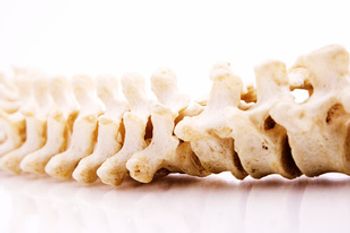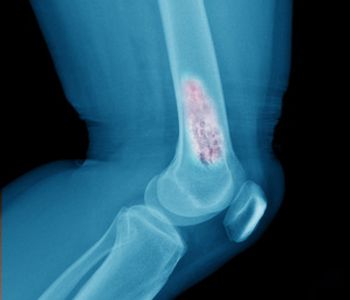
Skeletal-related events are frequent complications in patients with cancers. Two abstracts analyzed the use of bone-modifying agents in patients with newly diagnosed multiple myeloma and breast cancer.

Laura Joszt, MA, is the vice president of content for the managed care and pharmacy brands at MJH Life Sciences®, which includes The American Journal of Managed Care®, Managed Healthcare Executive®, Pharmacy Times®, and Drug Topics®. She has been with MJH Life Sciences since 2011.
Laura has an MA in business and economic reporting from New York University. You can connect with Laura on LinkedIn or Twitter.

Skeletal-related events are frequent complications in patients with cancers. Two abstracts analyzed the use of bone-modifying agents in patients with newly diagnosed multiple myeloma and breast cancer.

The results of the NCI-MATCH precision medicine trial showed that a drug combination designed to target cancers with certain BRAF gene mutations was effective.

Both the FDA and the European Medicines Agency (EMA) have accepted applications to review ozanimod, an oral sphingosine 1-phosphate receptor modulator, for the treatment of relapsing forms of multiple sclerosis (MS).

The concept of value is well known among health policy experts, the payer community, and policy makers, but patients do not necessarily have the same idea of what value means.

As increasing attention is paid to the cost of healthcare, there are growing efforts to steer patients toward high-value care. New research published in JAMA Network Open compared teaching hospitals with nonteaching hospitals to determine the total cost for common conditions.

The government taking a backseat has opened the market up to disrupters from outside the healthcare industry.

If employers want to be able to have an impact on the healthcare system and help create lower cost, more effective markets, they need to get informed, get tough, and get smart, said David Blumenthal, MD, president and chief executive officer, The Commonwealth Fund, during the 2019 Annual Conference of the Greater Philadelphia Business Coalition on Health.

Two abstracts presented at the 33rd Annual Meeting of the Consortium of Multiple Sclerosis Centers analyzed biomarkers to predict progression, disease severity, and cognitive impairment in multiple sclerosis (MS).

Bone metastases can cause pain in patients with cancer, and 2 abstracts presented at the 2019 American Society of Clinical Oncology Annual Meeting evaluated treating this pain.

Contrary to conventional wisdom, higher levels of genomic instability have been associated with lower immunogenicity, which means drugs are less effective, in patients with BRCA1/2-related breast cancers, according to research published in Clinical Cancer Research.

Two abstracts at the 2019 American Society of Clinical Oncology Annual Meeting analyzed bone metastases in cancer.

Long-term use of ozanimod may be associated with improved cognitive speed and higher rates of no evidence of disease activity among patients with relapsing multiple sclerosis (MS), according to 2 new abstracts presented at the 33rd Annual Meeting of the Consortium of Multiple Sclerosis Centers.

Creating a healthcare system that prioritizes a well-informed consumer and rewards improvements in quality requires overhauling the current system. Through a series of programs and initiatives, CMS, under Administrator Seema Verma’s leadership, is trying to fix some of the issues that plague the current US health system and make accessing care challenging for patients.

Testing for minimal residual disease (MRD) is increasingly being used in patients with cancer because deep MRD negativity is associated with better outcomes for patients and MRD status can help make decisions regarding treatment. Two abstracts presented at the 2019 American Society of Clinical Oncology Annual Meeting validated use of MRD testing in the real world and found it was cost-effective.

Patients who switched from ozanimod HCI 0.5 mg or interferon β-1a to ozanimod HCI 1.0 mg in an open-label extension study experienced sustained reduction in their annualized relapse rate. Patients who continued on with the 1.0 mg dose also experienced a sustained reduction.

Spanish researchers have identified 3 biomarkers, including minimal residual disease negativity, that can help define those elderly patients with multiple myeloma (MM) who are likely to achieve long-term disease control.

New research has identified how bone cells subdue cancer cells that have reached the bone so that the cancer cells remain dormant for decades. The finding may help researchers develop new treatments to prevent or treat metastatic disease and put cancer cells to sleep permanently.

Patients with ovarian cancer are undertested for the presence of mutations that could help guide healthcare decisions, according to research published in Journal of Clinical Oncology.

A study of readmission rates by primary care providers (PCPs) finds a lack of variation and calls into question implementing pay-for-performance programs that incentivize or penalize PCPs for readmissions.

Multifraction radiotherapy is standard to treat pain in patients with bone metastases that are mostly not in their spine, but new research has shown that single-fraction stereotactic body radiotherapy had higher rates of overall pain response and better local disease control.

Deductible Relief Day, the day when enrollees will, on average, have spent enough on healthcare to hit the average deductible in an employer plan, will be May 19 this year, far later in the year than a decade ago when it was March 18.

In oncology, precision medicine is already well established with targeted therapies approved based on the patient’s genetic makeup or genetic variants of their tumor, and using precision medicine successfully means also using diagnostics and next-generation sequencing (NGS). Last year, CMS finalized coverage of NGS tests, which are to be used to identify patients that may benefit the most from approved treatments. And it looks like other payers may be following CMS’ lead.

Adults with relapsing multiple sclerosis (MS) who are treated with ozanimod have less gray matter volume loss than patients treated with interferon, according to a post hoc analysis from the phase 3 RADIANCE Part B trial. The research was presented at the 2019 American Academy of Neurology Annual Meeting.

Mental health disorders are rising in prevalence around the world and will cost the global economy $16 trillion by 2030. Here are 5 things about mental health during Mental Health Month this May.

Programs that address chronic conditions have the potential to improve employee satisfaction, reduce costs, and improve employee health, said speakers at the Midwest Business Group on Health’s 39th Annual Conference, held May 8-9 in Chicago, Illinois.

Hospital prices of privately insured patients are more than twice the price that Medicare pays, according to a new report from RAND and supported by the Robert Wood Johnson Foundation, the National Institute for Health Care Reform, the Health Foundation of Greater Indianapolis, and participating employers.

Trust is crucial when employers are trying to have successful healthcare programs and engage employees to change behaviors, said panelists at the Midwest Business Group on Health’s 39th Annual Conference, held May 8-9 in Chicago, Illinois.

As the United States debates the feasibility and benefits or harms of a single-payer system, the important thing is to have a fact-based discussion and to ask questions, Jan Berger, MD, JD, chief executive officer of Health Intelligence Partners and medical director of the Midwest Business Group on Health (MBGH), said during a session at MBGH’s 39th Annual Conference, held May 8-9 in Chicago, Illinois.

Bisphosphonates, which are used to treat osteoporosis and prevent fractures, are increasingly being used more effectively in a population more likely to benefit, according to results presented at ENDO 2019, the Endocrine Society’s annual meeting.

Healthcare is very comfortable with treating a disease, but it’s not as good with handling cures. However, the advent of gene therapy and precision medicine means more and more expensive cures are coming down the pipeline, said panelists on the last day of Asembia’s 15th annual Specialty Pharmacy Summit, held April 29 to May 2 in Las Vegas, Nevada.

259 Prospect Plains Rd, Bldg H
Cranbury, NJ 08512
© 2025 MJH Life Sciences®
All rights reserved.
